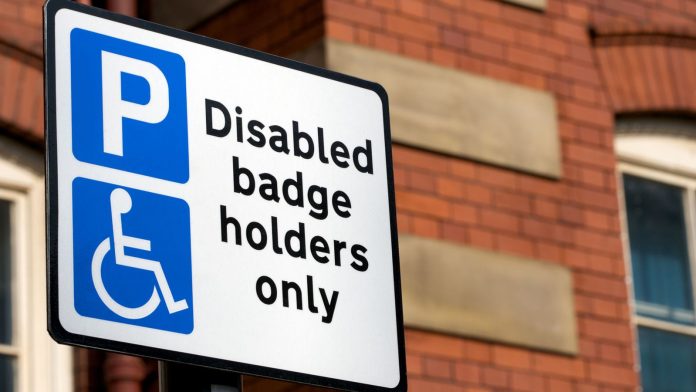[ad_1]

People with “hidden disabilities” such as autism and mental health conditions will be able to get blue badge parking permits under an overhaul of the system.
From next year, those with less immediately obvious illnesses will be eligible for the badges, allowing the holder to park closer to their destination like those with physical disabilities.
Although the current rules do not bar people with non-physical disabilities, the Department for Transport (DfT) says they are “open to interpretation” and require greater clarity.
Transport minister Jesse Norman said: “Blue badges are a lifeline for disabled people, giving them the freedom and confidence to get to work and visit friends independently.
“The changes we have announced today will ensure that this scheme is extended equally to people with hidden disabilities so that they can enjoy the freedoms that many of us take for granted.”
Those newly eligible in the scheme overhaul include:
- Those who cannot make a journey without “a risk of serious harm to health or safety” or others, including children with autism
- People who find journeys cause “very considerable physical distress”
- Those with considerable difficulty walking, “both the physical act and the experience of walking”.
The changes come after an eight week consultation held from January, which had more than 6,000 responses.
The blue badge scheme was first launched in 1970 and around 2.4 million disabled people in England have one.
Badges allow holders to park for free in pay and display bays and for up to three hours on yellow lines. They cost £10 from local authorities.
In London, it also exempts holders from the congestion charge.
Three in four blue badge holders say they would go out less often if they did not have one, the DfT has said previously.
Jane Harris of the National Autistic Society, said: “Just leaving the house is a challenge for many autistic people, involving detailed preparation – and sometimes overwhelming anxiety about plans going wrong.
“And some autistic people might not be aware of the dangers of the road or become overwhelmed by busy or loud environments.
“The possibility of not being able to find a parking space near where you’re going can mean you can’t contemplate leaving the house at all.”
There are about 600,000 autistic people living in England.
In Scotland, the badge scheme was extended in December to cover carers and relatives of people with conditions including dementia, autism and Down’s Syndrome.
[ad_2]







